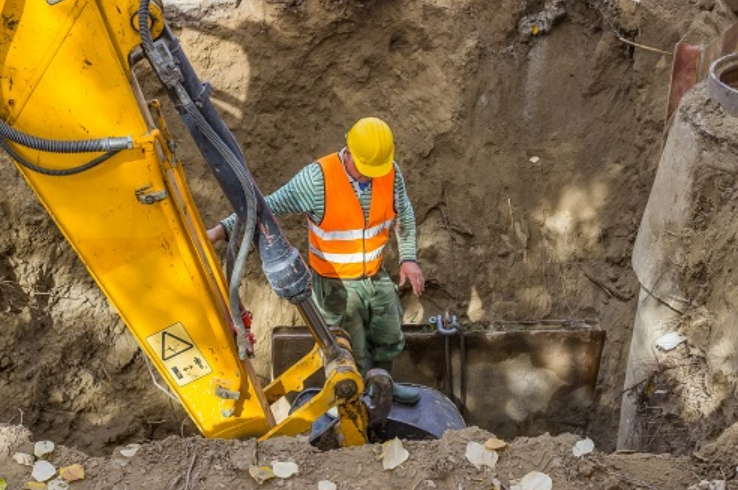Drive Success with English & French Canadian Translation
In today’s marketplace of a digital-first economy, corporations are no longer geographically constrained. Yet, whereas products and services cross borders effortlessly, messages literally are lost in translation. Companies that value the power of effective and culturally conscious communication are at a competitive edge in terms of going global. Accurate translation is not an independent task; it is a repetition process that demands discipline, foresight, and adaptability.
Canada, being a bilingual country, has a dynamic French-speaking population, and most prominently in Quebec. It has its own unique set of cultural traditions compared to the English. And while that is happening, Southeast Asia is quickly turning into an empire of online consumers. These are trends that indicate the need for pro-active, culture-aware language strategies tailored for each region. When your message communicates clearly and respectfully to your audience’s language and culture, success comes as a natural byproduct.
Let us examine how business firms can utilize adjusted language strategies directly via professional translation to overcome language barriers, build trust, and augment influence.
Canada’s Bilingual Advantage: Opportunity or Challenge?
The Canadian market presents a unique challenge for domestically operating firms. In an attempt to comply with federal and provincial language law, most especially in Quebec, all public messages must be both in English and French. This encompasses packaging, marketing, web sites, and customer service.
Not adhering to this standard may result in fines, lawsuits, and a damaged brand name. However, organizations that emphasize accurate, region-focused translation unlock more than 8 million French-speaking buyers. With translations from French Canadian to English, companies also gain the ability to take Quebec-based goods and services to a wider North American marketplace. Globallink Web specializes in comprehensive website translation services that help businesses navigate these bilingual requirements effectively, ensuring seamless communication across Canada’s diverse linguistic landscape while maintaining cultural authenticity and regulatory compliance.
These services are not simply word translation. These professional translators are aware of both the linguistic and cultural disparities between standard French and Canadian French so that messages are real with local listeners.With such awareness, they ensure that messages not only pass through but are also received and accepted.
Gaining Ground in Southeast Asia
Indonesia, the fourth largest population in the world, is a fast-growing digital economy with a young, technology-savvy population. For businesses entering this economy, Bahasa Indonesia communications are a priority.
Using English to Indonesian translation services, businesses can earn trust, cut through confusion, and deliver a smooth user experience. For e-commerce websites, health and fitness applications, or learning materials, accurate translation bridges the gaps and gives confidence.
It should be highlighted that in countries like Indonesia, their cultural values and means of communication are significantly different from those of the West. Cultural expertise is provided by native translators such that your message comes across as respectful, pertinent, and effective.
See also: What Is Digital Transformation (And Why It Matters)?
Key Sectors That Gain Advantage Through Bilingual & Multilingual Translation
1. E-commerce
Localization affects purchasing decisions. Descriptions, checkout, and support need to all seem natural to the local consumer. One misplaced detail of translation can lead to failed carts or negative reviews.
2. Healthcare
Healthcare terminology has to be translated accurately. Misunderstanding has catastrophic results. Language assistance in patient-facing applications, information pamphlets, and medical equipment improves safety and accessibility.
3. Legal and Compliance
Provinces like Quebec have strict rules on the use of French in contracts and legal documents. Translation facilitates compliance and risk reduction in business transactions.
4. Education and Training
Multilingual content empowers end-users, students, and employees. Tailored content supports better understanding and recall, especially when entering new international markets.
Pitfalls to Watch Out For
Reliance on Automated Translation Alone
Machine translation has been improved but cannot yet preserve tone, context, or nuance. Even though they can assist in drafts, finished content requires professional editing.
Overlooking Regional Variants
All French is not equal. Just as there is disparity between American and British English, there is disparity between French Canadian’s idiomatic expression, grammatical norms, and stylistic traditions. Ignoring this can lead to confusion or even insult.
Underestimating the Role of Culture
Language cannot be separated from culture. Insensitivity to culture can dilute your message or destroy your reputation. Professional translators not only translate, they localize, meaning that visuals, tone, and references are tailored to the recipient.
Building a Long-Term Translation Strategy
Good translation is not one thing; it is a repetitive process that demands discipline, vision, and adaptability. Businesses that wish to make language communication a success must make their translation a centric point to guarantee tone, terminology, and message consistency.
For business corporations entering Southeast Asia, using English to Indonesian translation services ensures that local audiences receive messages that ring true and are culturally appropriate. On the other hand, entering the Canadian market at times requires careful accommodation, and that is where French Canadian to English translation services are needed in maintaining brand integrity as it pitches to English-speaking markets within bilingual regions.
Developing a formal language strategy or working with a seasoned translation vendor will simplify communication and make it clearer. Of equal concern is investing in quality assurance procedures like back-translation and linguistic validation to prevent misinterpretation and safeguard brand reputation.
Training content developers and client-side personnel to appreciate linguistic correctness and cultural awareness bolsters the foundation of a worldwide communications plan. Finally, the use of feedback loops in the translation process enables firms to change according to audience feedback, so the strategy stays dynamic and on point over time.
Conclusion
Translation, when properly executed, becomes a business asset. It enables brands to clearly and respectfully convey their value to multicultural audiences. From Quebec to Jakarta, consumers demand to be heard on their own terms. Whether operating under Canadian bilingual legislation or venturing into Southeast Asian opportunity, companies that focus on language will open new growth.





